As Filipinos, we share so many unique quirks, habits and experiences that instantly reveal our heritage, even without explicitly saying “I’m Filipino.”
From our love of karaoke to our unparalleled hospitality, there are countless ways we express our Filipino-ness each and every day.
Let’s explore some of the most common and endearing traits that make it obvious you’re a true-blue Pinoy at heart.
Your Spaghetti is on the Sweet Side
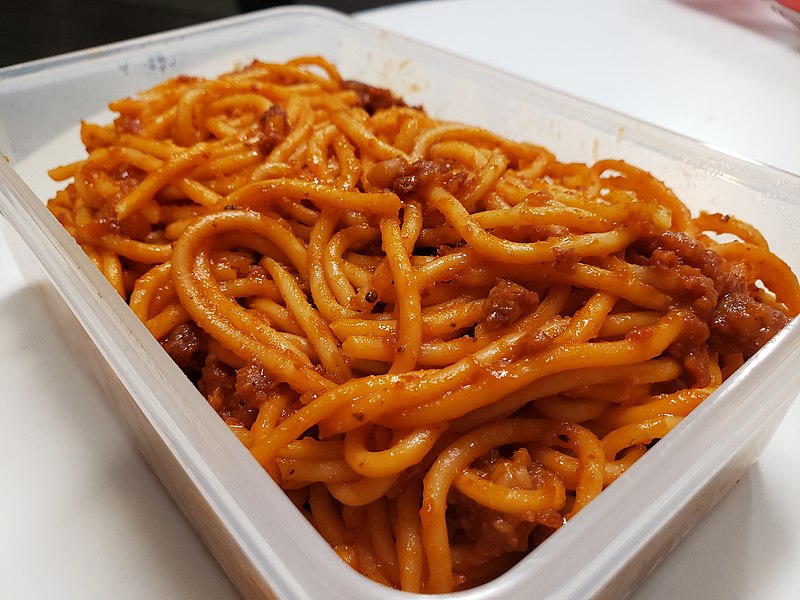
While Italian spaghetti is savory with hints of acidity from the tomatoes, we Filipinos put a distinctly sweet spin on this classic dish.
A generous helping of sugar or banana ketchup gives Pinoy spaghetti a red-orange hue and saccharine flavor that pairs perfectly with hotdogs and grated cheese. This party staple is a dead giveaway of your Filipino roots.
“Psst” is Your Default Attention-Grabber
When you need to get someone’s attention, your go-to sound is a quick, sharp “psst!” No “Hey there!” or “Excuse me” needed.
This short but effective hiss, usually accompanied by a head nod or eyebrow raise, is an unspoken code among Filipinos. It’s the perfect way to discreetly catch someone’s eye in a crowded room.
You Have a Tabo in Your Bathroom
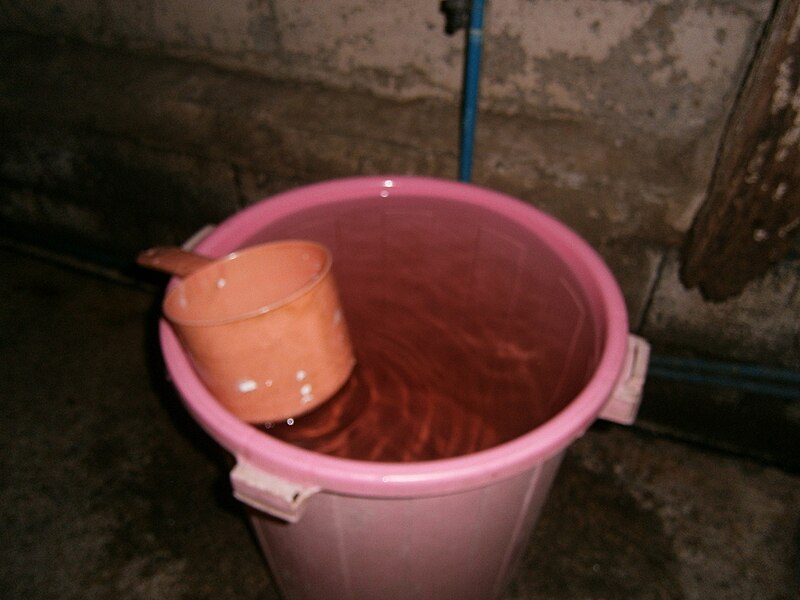
No Filipino bathroom is complete without a trusty tabo.
This humble plastic dipper is a multipurpose essential – for taking a bath, cleaning yourself after using the toilet, watering plants, and more. Using a tabo is second nature to you, and you might even feel a bit lost in bathrooms without one. It’s a small but mighty symbol of Filipino ingenuity and resourcefulness.
You Add “Po” and “Opo” When Speaking to Elders
Respect for elders is deeply ingrained in Filipino culture, and this is reflected in our language.
When conversing with someone older than you, it’s almost instinctive to pepper your sentences with “po” and “opo.” These respectful markers come naturally to you and using them is a sign of your good upbringing and Filipino values.
You Have a Bottle of Toyo and Suka on Your Dining Table
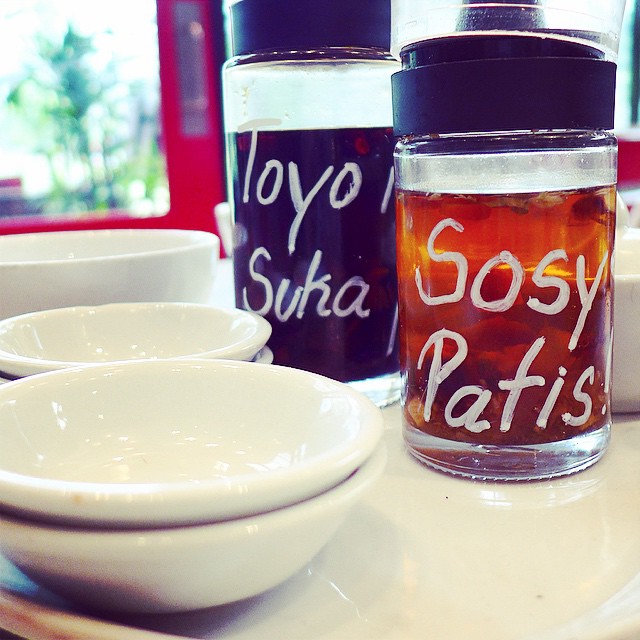
No Filipino dining table is complete without the dynamic duo of toyo (soy sauce) and suka (vinegar).
These trusty condiments are used to season everything from sinangag (garlic fried rice) to grilled meats and fish. If your hand automatically reaches for these bottles to sawsaw your meal, you’re definitely Filipino.
Mano Po is Your Way of Greeting Elders
Pagmamano, or touching an elder’s hand to your forehead as a sign of respect, is a cherished Filipino tradition.
You know you’re Filipino when this gesture comes automatically to you when greeting grandparents, aunts, uncles, and other respected figures. It’s a beautiful way of honoring their wisdom and showing your utmost regard for them.
You Wear Tsinelas Everywhere
Filipinos love their tsinelas (flip-flops).
These versatile sandals are worn everywhere – at home, to the sari-sari store, playing Filipino traditional games, even to semi-formal events. You know you’re Pinoy when your feet feel naked without your trusty rubber slippers. Bonus points if you have a designated tsinelas for the bathroom and for pang-porma.
Balikbayan Boxes are Your Pasalubong Kings
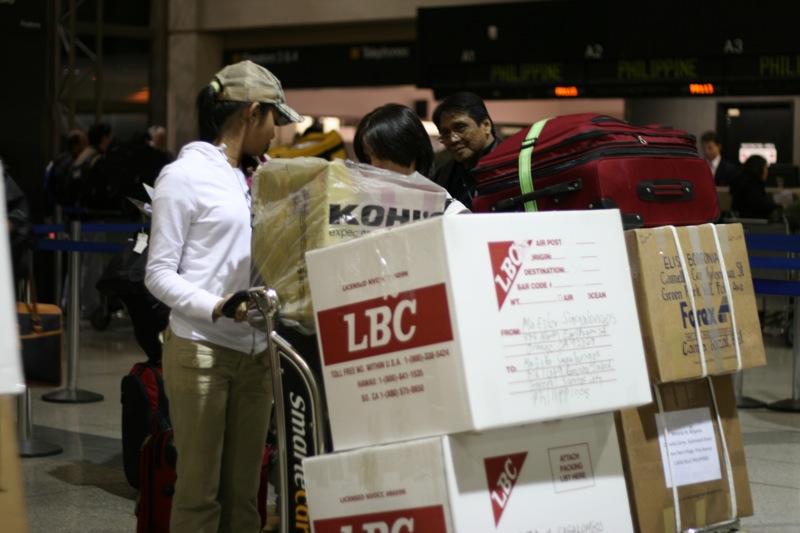
Your family abroad always sends their love in the form of balikbayan boxes filled to the brim with chocolates, toiletries, clothes, and other pasalubong.
Receiving these care packages feels like Christmas morning, and you can’t help but feel kilig at the thoughtfulness. These boxes are a heartwarming symbol of the Filipino diaspora’s enduring connection to their homeland.
You Have a Giant Spoon and Fork on Your Wall
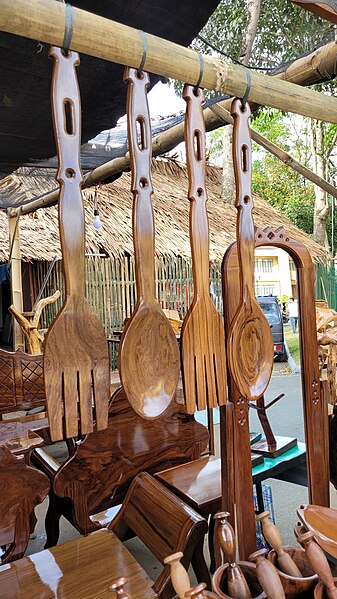
Oversized utensils are a quirky but ubiquitous decor choice in Filipino households.
These wooden or plastic spoons and forks, often painted in bright colors, adorn many dining room walls. Some even come with a giant knife to complete the set. This kitschy decor is a playful nod to the Filipino love for food and eating together.
You Eat Rice for Breakfast, Lunch, and Dinner

Rice is life for Filipinos.
A meal isn’t complete without a heaping serving of this beloved grain, whether it’s sinangag for breakfast, plain steamed rice for lunch, or garlic fried rice for dinner. You know you’re Filipino when the thought of a rice-less meal makes you feel a little sad inside. Kanin is king, after all.
You Use Your Lips to Point at Things
Filipinos have a unique way of pointing at things – with their lips!
The infamous “nguso” involves puckering your lips in the direction of the object you’re referring to. This subtle gesture is a quirky Filipino habit that comes naturally to you, even if it sometimes confuses non-Pinoys. It’s a charming reminder of your Filipino heritage.
So, tell me you’re a Filipino without telling me you’re a Filipino. Leave them in the comment section.
These are just a handful of the many endearing quirks and habits that reveal your Filipino identity.
From our food preferences to our respect for elders, these traits are woven into the very fabric of our culture.
They connect us to our roots and to each other, no matter where in the world we may be.
So the next time someone asks you to prove you’re Filipino without saying it outright, just flash them a knowing smile and let your Pinoy pride shine through in all the little ways that make you who you are.
As they say in these islands, “Proud to be Pinoy!”




Your comment is awaiting moderation.
Looking forward to reading more. Great article.Really looking forward to read more. Awesome.